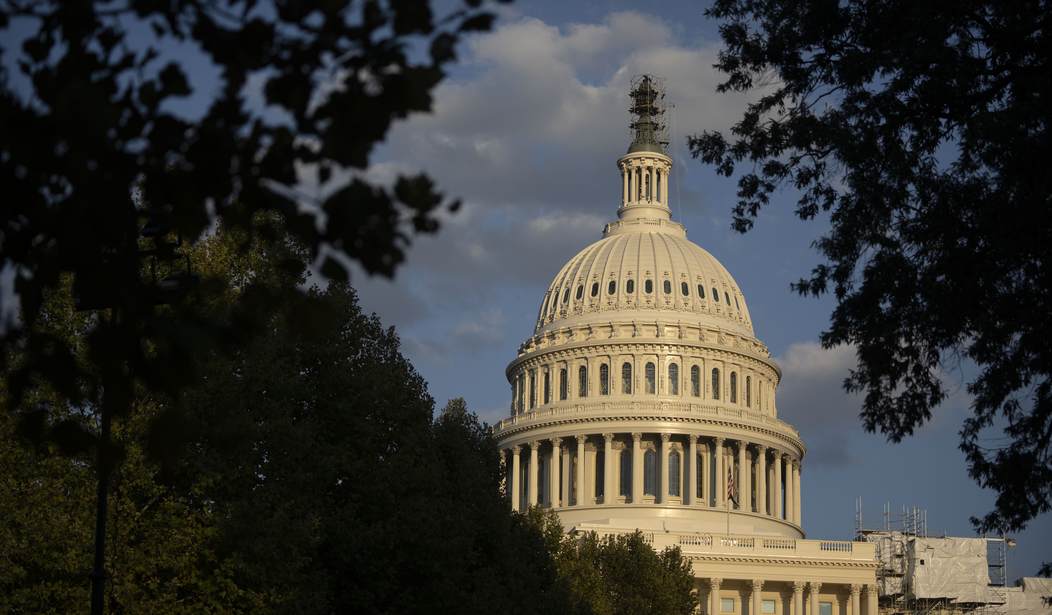Americans’ post-pandemic economic anxiety is proving to be hard to shake off. In recent polling, almost two-thirds of Americans considered “middle-class” said they’re facing economic hardship. Even those that are a bit higher on the socioeconomic ladder feel financial insecure.
The correct policy prescription includes fostering conditions that create, expand, and enhance financial opportunities, including allowing for an array of investment vehicles that fit as many types of willing investors as possible. That is the framework lawmakers and regulators should have in mind.
That doesn’t seem to be the current tack at the Securities and Exchange Commission (SEC). Instead, the agency seems blind to the activist hedge funds that are increasingly hijacking Closed End Funds (CEFs). Proper legislation would be the more suitable approach, especially since this issue seems worthy of bipartisan interest.
CEF’s are uniquely valuable to many retail investors, in other words average, non-professional Americans who are not investment or financial services professionals. The funds are typically for longer-term investment and can be an important part of retirement planning or any type of income-generating savings. Most people invest in CEFs not only for their consistent returns, but for access to alternative asset classes like real estate or private companies. In 2022, an estimated 3.8 million U.S. households held CEFs.
The "closed" structure of these funds enables the delivery of consistent distributions and long-term performance. The structure also means funds may trade at a discount to the net asset value (NAV) for certain periods, but since the funds are made for the long-term, it typically course corrects throughout market cycles. Like the market generally, discounts are cyclical and can actually bring new buyers in.
Recommended
Unfortunately, this asset class is under attack.
BlackRock, the largest asset management firm in the country, has found itself as the latest target of an activist hedge fund, with proxy contests launched against ten of its CEFs. Founder and Chief Investor of Saba Capital Management, Boaz Weinstein, claims that his effort is meant to “hold BlackRock…accountable for destroying billions in shareholder value.” Saba is positioning itself as a champion for everyday investors. In a recent interview he claimed that “what [Saba] want[s] is for shareholders…to make that $1.4 billion, which can be done with the press of a button.”
But Saba’s history is closer to a corporate raider who uses proxy bids strategically for their own interests. For example, Saba's takeover of other funds, now known as the Saba Capital Income & Opportunities Fund (PPR) and the Saba Capital Income & Opportunities Fund II (GIM), resulted in both funds losing approximately 50% of their assets since Saba first engaged them.
CEFs have plummeted 35% since 2007 at the same pace activism has accelerated, according to Investment Company Institute data. Closed-end funds are vulnerable to companies like Saba because of an old loophole. Section 12 of the Investment Company Act prohibits private and registered funds from acquiring more than 3% of a CEF’s voting shares. While registered funds that share the same investment advisor are barred from collectively owning more than 10% of a CEF’s voting shares, hedge funds are not restricted in the same way. Activists can take advantage of this unforeseen opening in the Investment Company Act, which was established to protect everyday investors from predatory activists who could use a large stake to their benefit and without concern for smaller shareholders.
Meanwhile. the SEC has been inserting itself into political matters and inviting legal turmoil by pursuing agendas outside its mission, like climate-related regulations, rather than protecting investors.
What would protect investors and ensure fair securities markets is closing the Section 12 loophole.
There has been some legislative movement. The House of Representatives passed The Increasing Investor Opportunities Act in March with bipartisan support. The bill seeks to apply the same restrictions to private funds that are already applied to registered funds. Congress should step-up and work to protect retail investors. While there at it, they should expand and broaden investment opportunities for all Americans.
If attacks on CEFs continue, the entire asset class could become extinct. This should concern investors, anyone who wants to increase Americans’ ability to create wealth, and policymakers.
Mario H. Lopez is president of the Hispanic Leadership Fund, a public policy advocacy organization that promotes liberty, opportunity, and prosperity for all Americans.

























Join the conversation as a VIP Member